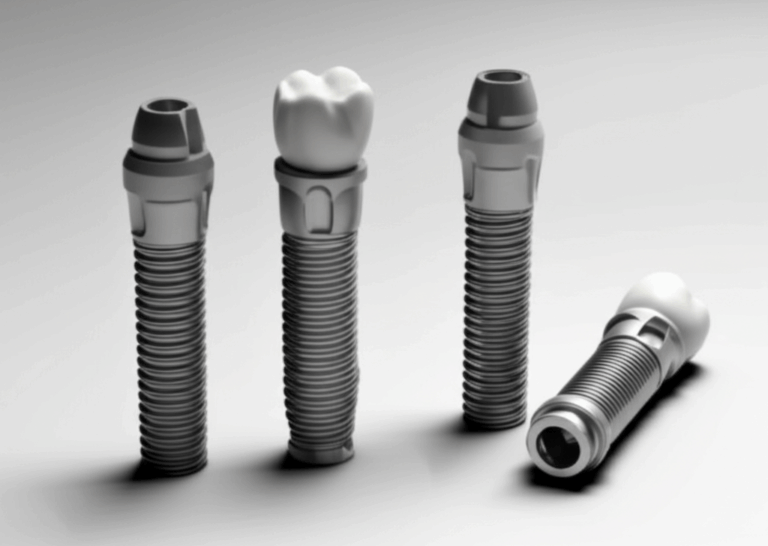
How Much Are Renew Dental Implants
Thinking about Renew dental implants and what they cost? This post lays out everything you need to know – prices, what you get for your money, the hidden things no one warns you about, and how to tell if dental implants are worth it for you. Don’t let tricky numbers or dental jargon catch you off guard – I’ll break down the costs so you can make a smart decision.
Article Outline
- What Exactly Are Renew Dental Implants?
- Why Are Dental Implants So Expensive?
- What’s the Average Cost for Renew Dental Implants?
- What’s Included in the Price Tag?
- Are There Cheaper Alternatives?
- Does Insurance Help with Dental Implant Costs?
- What Factors Affect the Final Price?
- Do Different Labs Make a Difference?
- How Can You Save Money on Dental Implants?
- Are Renew Dental Implants Worth the Cost?
- Bullet Point Summary: Key Takeaways
What Exactly Are Renew Dental Implants?
Before I learned much about teeth, I used to think “dental implants” were just fake teeth screwed into your gums. But after talking to dentists and people who work in dental labs, I found out they’re much more exact. Renew dental implants are a well-known brand that gives you a whole set of teeth attached to metal posts that go in your jaw. Instead of regular dentures you take out at night, these are fixed, working like new roots for your teeth.
If you’re tired of loose dentures or missing teeth, Renew is a way to get strong, non-removable teeth. They use a few posts in your jaw and a row of teeth built in a dental lab. Each lab does things a bit differently: some use zirconia, others use Emax, and some use 3D printing. But whatever the method, the goal is to give you a natural smile – and let you eat your favorite foods again.
So, Renew dental implants aren’t just fast fake teeth. They’re a real solution for people who want their smile and confidence back, not just a quick fix.
Why Are Dental Implants So Expensive?
You might ask, “Why does getting a screw in my jaw cost more than a used car?” Here’s what I found. First, dentists need special training to do implants—it’s not just sticking them in like a thumbtack. The metal posts (like titanium or zirconia) aren’t cheap either, especially from a good dental lab.
But that’s not all. Once the posts are placed, you need time to heal, molds taken, and new teeth made to look real. Dental tech workers in labs work hard to make your smile right. Plus, you get x-rays, appointments, anesthesia… It adds up.
The problem is you really can’t take shortcuts with your mouth. Cheap work now often means fixing things later, which costs even more. But don’t worry, I’ll share ways to help with the cost.
What’s the Average Cost for Renew Dental Implants?
Alright, let’s face the big question: what do Renew dental implants usually cost? When I checked with clinics, most gave me rough numbers, not exact ones. Here’s what I found:
- One implant: usually about $3,500 to $5,000.
- Full mouth with Renew? It can be anywhere from $20,000 (cheap end) up to $50,000 or more per jaw.
Pretty shocking, right? But remember, that price covers not just the post but the custom teeth, surgery, lab work, and months of care. Some offices sell “teeth in a day” for less, but ask if pulling teeth, adding bone, or making temp teeth is part of the deal.
If your jaw is healthy, you might pay less. If you need more work, the cost goes up.
What’s Included in the Price Tag?
Dentists (and their ads) like to throw around low prices, but there’s always more to it. With Renew dental implants, the price usually includes:
- Consult and x-rays (the first visit)
- Implant surgery (putting the metal post in your jaw)
- Custom parts and new teeth made by a lab
- Temporary teeth so you’re not missing teeth while you heal
- The final new teeth (sometimes made in a high-end lab for best quality)
But pulling teeth, adding bone, and care after surgery may cost extra. Always ask for a detailed quote so you don’t get a surprise bill halfway through the process.
Are There Cheaper Alternatives?
Who doesn’t want a good deal? When I first saw how much dental implants cost, I searched for cheaper ways. There are other ways to fix missing teeth. Regular dentures and bridges are cheaper—maybe $1,000 to $2,000 for a set—but they don’t stay in place or feel as real as implants.
You can also get “mini” implants or snap-in dentures for less money. But remember, they might not last as long, especially if the lab work isn’t good. Worst case, you pay less now but pay more later to fix things.
If you’re looking for bargains, be careful. Don’t get cheap tooth implants from chains or travel clinics unless you know the lab and dentist are solid. Your smile is worth checking out first.
Does Insurance Help with Dental Implant Costs?
Let’s talk about insurance—it’s a big deal for most people. I found out the hard way that many dental insurance plans call implants “not needed” or “just to look better.” That means they don’t pay much. You might get a little help with x-rays or getting teeth pulled, but not for the implant itself.
Regular health insurance almost never pays for tooth implants, unless you lost teeth in an accident or because of something like oral cancer. But a few really good plans or dental discount clubs pay for a little bit. It’s worth calling to check!
If the price is too much at once, ask your dentist about payment plans. Many offices let you pay for Renew dental implants over months instead of all together.
What Factors Affect the Final Price?
No two people—or wallets—are alike. Dentists told me the final price can change a lot because of:
- How many implants you get (one tooth, a few, or all your teeth)
- What material is used—titanium, zirconia, or Emax for really tough teeth
- If you need bone added or teeth pulled first
- Where the office is: big cities like Los Angeles or New York usually cost more than small towns
- Which lab they use—foreign lab, local lab, or one that specializes in high-end work
The harder your case, the more it costs. If you want the “fancy car” of teeth, you’ll pay extra. If your mouth is healthy, it can be a lot cheaper.
Do Different Labs Make a Difference?
You might think you just pick a dentist, but every implant is shaped by what happens in the dental lab. I’ve visited a few labs—some make teeth that look totally real, others do sloppy work and you end up with fake-looking teeth.
Good labs use quality materials like Emax or zirconia. Some labs offer strong, stain-proof teeth, and some overseas labs cost less if your dentist trusts them. 3D printing is getting popular, which sometimes means your teeth fit better and are made faster.
What lab you pick really matters. Cheap labs can look okay at first, but if your teeth break or don’t fit well, you’ll have to get them redone, which isn’t cheap.
How Can You Save Money on Dental Implants?
The sticker price can hurt, but there are ways to make it easier. First, shop around. Ask three dentists for prices—and check which lab they use. Some clinics with their own labs might charge less by skipping the middleman.
Think about dental schools. Student dentists (with teachers watching) often charge a lot less for implants. It takes longer, but you might pay half or even less.
Don’t be afraid to ask about payment plans or outside loans. Some dental offices hook you up with lenders so you can spread payments over time. And check if a health savings account (HSA) or flexible spending account (FSA) pays for part of the cost—it’s your own money, but it’s not taxed.
Are Renew Dental Implants Worth the Cost?
False teeth seem cheaper at first, but let’s think about the long run. I met a guy once who picked dentures because implants were expensive. Three years later, he hated them. They slipped, made noise, and needed sticky glue. He finally got implants and was much happier.
Renew dental implants give you back the chance to eat what you want and talk without problems. They don’t slip, or taste bad, so you just feel normal and confident. Over ten years, the cost ends up not so high—especially when you remember how much better it feels. Only you can decide if it’s worth the money now to feel better later.
Ask to see before-and-after photos of other patients, and make sure your dentist uses a good lab. If you pick the right pro, you shouldn’t need a redo in five years.
Bullet Point Summary: Key Takeaways
- Renew dental implants can cost from $3,500 (for one tooth) to over $50,000 (for a full set)
- Prices include the first visit, implant surgery, custom teeth from a lab, and more
- Great care and picking the right lab is as important as choosing the dentist
- Insurance almost never pays for implants, but financing and dental schools can help save money
- Don’t choose cheap work—bad implants or low-quality labs can mean paying more later for repairs
- Think about the cost compared to years of comfort, confidence, and eating whatever you want
- Always ask for clear quotes and know what’s included in the price
- If you’re shopping, check at least three clinics (and their labs!) before making a choice
Remember: Your smile is an investment. Pick carefully, learn as much as you can, and you’ll enjoy the results for a long time.








